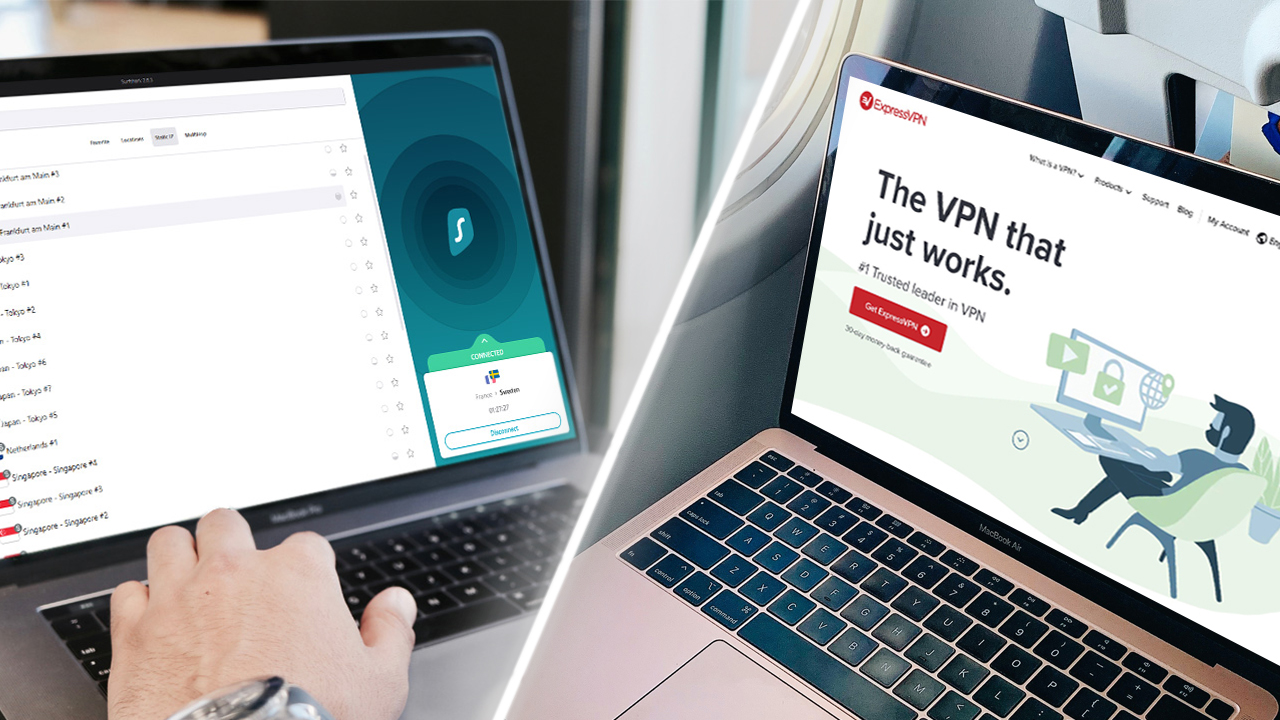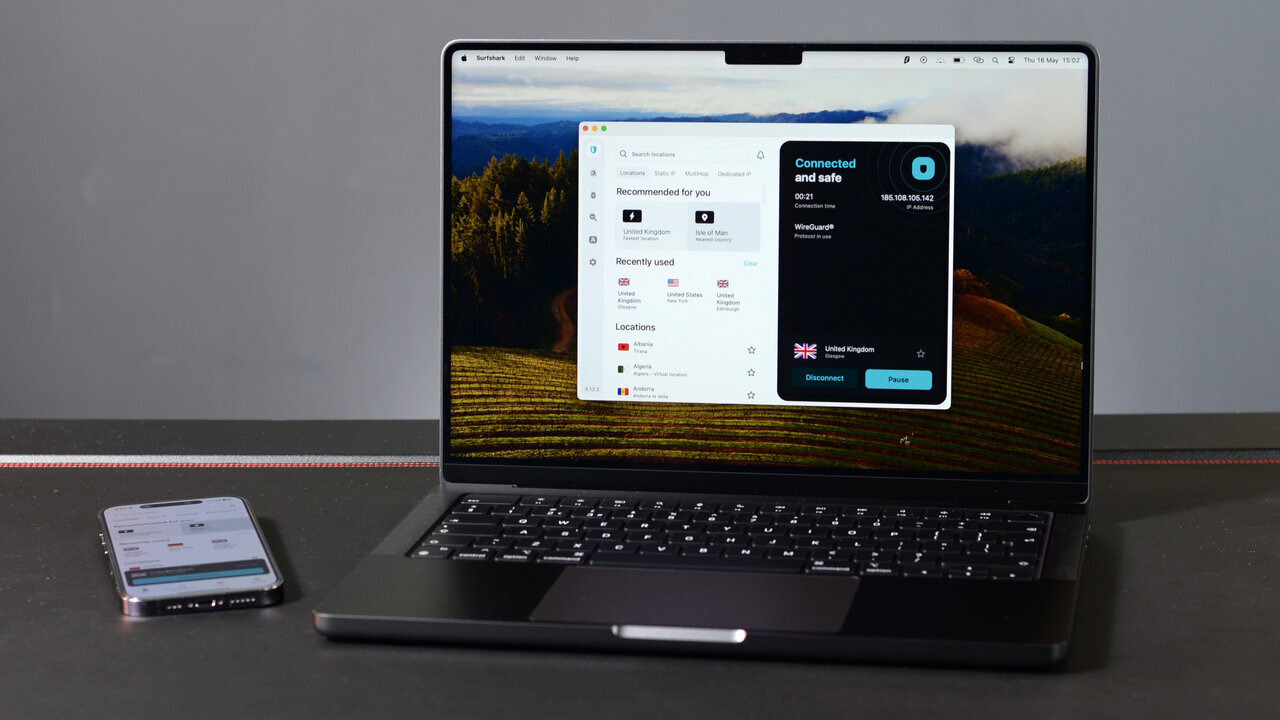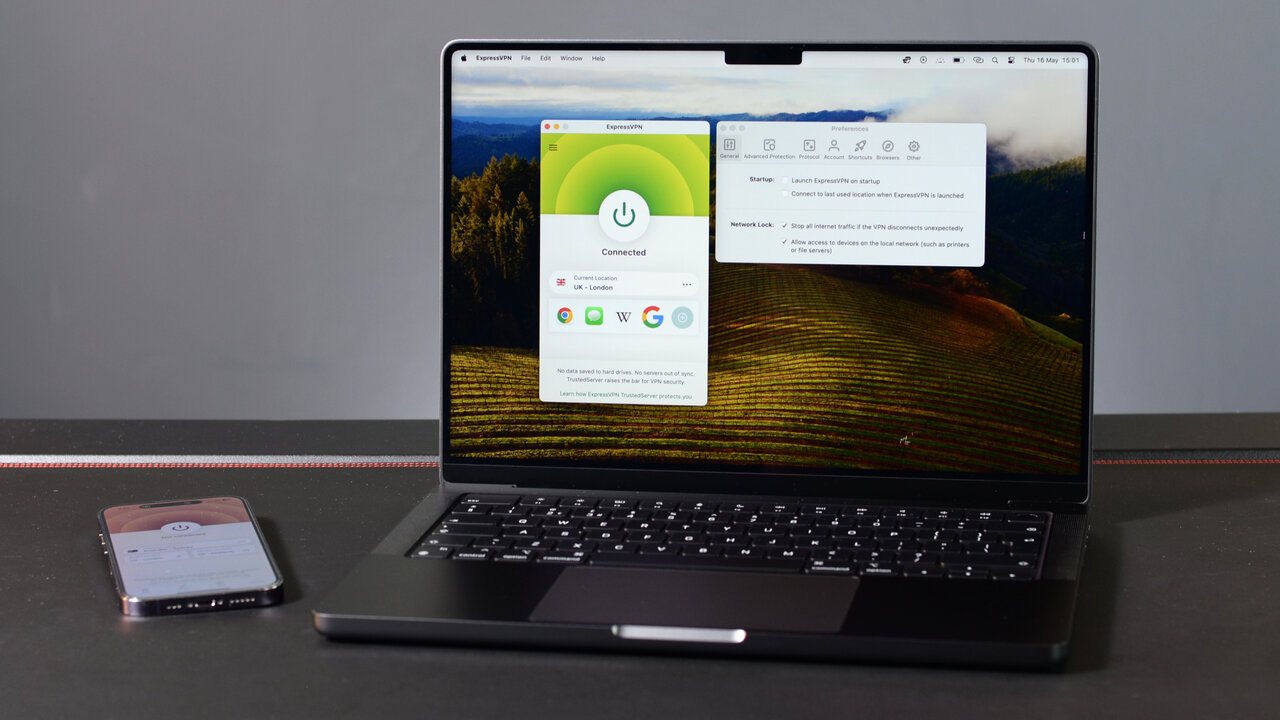
Here at Tom’s Guide, we write a lot of recommendations. In order to make sure these recommendations are properly informed and correct, we do extensive testing and research. Just one of these areas of testing is VPNs, so we can definitively see which are the best VPNs, and make the best recommendations to our readers.
Up until recently, ExpressVPN ranked number 2 in our list of our top VPNs, while Surfshark sat at number 3. However, after our latest testing for our hands-on ExpressVPN review and Surfshark review, Surfshark has now overtaken ExpressVPN and moved into the silver-medal spot..
But why do we now think Surfshark is better than ExpressVPN? In this article, we’ll explain the key differences between ExpressVPN and Surfshark and talk you through all our latest research that shows Surfshark has the edge.
1. It's faster
One of the most important factors when choosing a VPN is how fast it is. Because a VPN routes your traffic through another server, it can often impact your speeds. But many VPNs minimize this by employing various methods to deliver fast and reliable speeds that are sufficient for buffer-free gaming and streaming.
We run regular speed tests on all the most reputable VPNs and factor that into our rankings of the best providers, and in our latest review, Surfshark was one of the fastest VPNs, maxing out our testing at over 950 Mbps when using the WireGuard protocol.
ExpressVPN reached speeds of 898 Mbps when using the Lightway protocol – which is similar to WireGuard. While this is still far more than most domestic connections can handle, Surfshark is the faster option.
However, the big difference comes when you compare OpenVPN connections. Surfshark maxed out our line again at over 950 Mbps, which was faster than any other VPN we tested by far. ExpressVPN, on the other hand, delivered pretty middling speeds of around 200 Mbps with OpenVPN. Again, this isn't slow, bt Surfshark is the clear winner in this regard.
So, Surfshark is a better choice if speed is your most pressing concern – especially if you plan on using OpenVPN.

2. It's cheaper
As with any purchase, price is one of the biggest deciding factors, particularly if it’s a long-term subscription. Based on our testing, Surfshark is the best cheap VPN on the market, representing fantastic value for money. You can get a subscription for just $1.99 a month on a two-year plan, which is one of the cheapest subscription prices around.
ExpressVPN, on the other hand, is one of the most expensive VPNs on the market, with even its cheapest two-year subscription costing $5.32 a month. Given that this is more than double the cost of a Surfshark two-year subscription, Surfshark is the clear winner.
What's more, Surfshark performs as well as VPNs that cost twice as much, so you really can have your cake and eat it.

3. It's better at unblocking content
One of the main benefits of using a VPN is that you can use it to spoof your true location by connecting to a server in another part of the world. This enables you to unblock geo-restricted content, so you can access sites and streaming services from other countries. However, many streaming services use methods to detect and ban VPN traffic, so a VPN has to be pretty powerful to reliably unblock content.
As this is such a key factor for lots of VPN users, we regularly test out unblocking capabilities on our recommended VPNs. In our testing, we found that Surfshark was one of the best streaming VPNs, being able to unblock both regional and international streaming services with ease. This includes 10Play, Netflix, iPlayer, and Disney Plus.
However, we did experience a few small unblocking issues when using ExpressVPN. It unblocked Netflix Australia with only one out of three locations, Netflix Japan with two out of three locations, and 10Play Australia with only one out of three locations. It’s worth noting that ExpressVPN is generally pretty good at unblocking location-restricted streaming services, but in our latest round of testing, Surfshark was definitely more consistent.
4. Better malware and phishing blocking
Surfshark offers a superior service over ExpressVPN when it comes to blocking malware, and the two perform fairly similarly for blocking ads and detecting phishing sites. As you can see in the table below, Surfshark is the better choice, if you use Surfshark Antivirus.
It’s worth noting that ExpressVPN is pretty good at blocking ads (and was better than Surfshark in our testing), but it doesn’t block malware sites. This means that while it will definitely keep your data safe from anyone trying to snoop on it via your internet connection, it can't protect you from other ways people will try and steal your data.
Something else to consider is that in our initial round of testing, ExpressVPN scored 0% in both the malware detection and phishing blocking categories. We got in touch with the developers, and adjustments were made to improve the phishing performance – but Surfshark delivered good results straight out the box.
It's also important to note that Surfshark itself only blocked 6 and 7% of malware and phishing sites respectively. With this being said, Surfshark Antivirus was much more effective, blocking one in three malware sites and 94% of phishing sites.
5. It has added cybersecurity features
Aside from unblocking region-restricted content, the main reason VPNs are so popular is that they can keep your data safe while you’re online. Surfshark has recently added some new security features that give it a definite edge over ExpressVPN’s offering.
Most interestiongly, Surfshark has introduced two products called Alternative ID and Alternative Number, which generates a new online identity and email address or phone number for you to use while you’re online. You can use it to create an alternative email address or phone number and link it to your real contact details to protect your identity when you register for sites and services.
As mentioned above, you can also add Surfshark Antivirus onto your plan, which is a very effective tool.
ExpressVPN doesn't currently offer anything comparable, giving Surfshark the overall edge when it comes to user privacy and safety.







